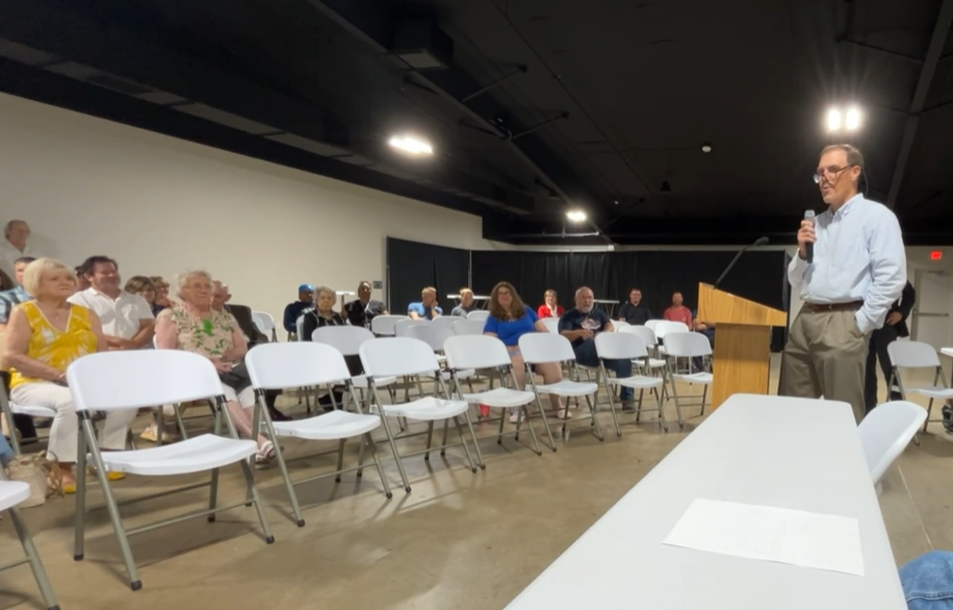JOHN HOOD COLUMN: Leaders can build a better politics
Published 2:14 pm Saturday, December 23, 2023
|
Getting your Trinity Audio player ready...
|
RALEIGH — In this season of joy and renewal, as we reflect on the year that was and hope for better in the year to come, more than a few of us will wish for a better, more constructive politics.

John Hood
Some years ago, High Point University’s survey team asked North Carolinians about the health of our public discourse. More than two-thirds of respondents said people were “more divided than usual,” with an even-higher share (77%) agreeing that “most people have little patience with people who disagree with them.”
This broad public sentiment about declining civility in political discourse is to some extent a self-indictment. If most of us agree that our politics is broken, and that most people are having trouble separating their partisan disagreements from their personal relationships, it’s mathematically impossible for the problem to be confined only to “those people” on the other side of the fence. Virtually everyone is implicated to some extent.
Trending
Is there a way out? No — by which I mean there is no single, sweeping solution to such a complex problem. The causes are many and difficult to disentangle. But certainly one solution must be to improve the conduct of our political leaders.
There’s a bit of a chicken-and-egg debate here. On the one hand, we know that politicians are self-interested to a significant extent, as are all human beings. They want to gain election, win reelection and boost their stature by exercising power to advance their political agendas.
If we the people have become more polarized, more vitriolic and more easily distracted, politicians may see it as serving their interest to ridicule dissenters, attack adversaries and turn up the decibel level on their political rhetoric to attract, keep and wield the support of their electoral constituencies.
But the causal arrow could point the other direction — with we the people, as political followers, tending to adopt the priorities, temperament and positions of the political leaders from whom we take our cues. This model happens to have a great deal of empirical support. In his book “Follow the Leader,” for example, political scientist Gabriel Lenz provide many cases in which voters tend to adapt their sentiments to those of their leaders, rather than the reverse. This fact gives politicians “considerable freedom,” Lenz concluded.
That’s actually good news! It means that at least part of the solution will arise from convincing current and prospect political leaders to take responsibility for the problem and start doing something about it.
I am involved in several projects intended to do just that here in our state. The North Carolina Institute of Political Leadership (IOPL), for which I serve as board chair, focuses on the “front end” of the leadership pipeline. Each semester, IOPL provides rigorous training for North Carolinians who aspire to serve in elective or appointive office.
Trending
Another program, affiliated with the John Locke Foundation, includes but is not limited to would-be politicians. The E.A. Morris Fellowship for Emerging Leaders provides young North Carolinians a yearlong program that helps participants learn how to build teams of individuals with differing strengths and backgrounds.
For those already serving as leaders in our state — not only state and local officials but also leaders of companies, trade associations, nonprofits, educational institutions, and religious congregations who help to shape the debate on critical public issues — the North Carolina Leadership Forum (NCLF) convenes a series of meetings to study and debate such issues while also forming valuable personal relationships. Based at Duke University, NCLF promotes constructive engagement across political differences, rather than pursuing a futile attempt to wish or wash such differences away.
In the 1953 Disney version of “Peter Pan,” the Lost Boys joyfully sing about “following the leader wherever he may go” to the mischievous title character. While we North Carolinians may not be exactly “lost,” we do entrust a great deal of power to those who lead us. These and other programs are designed to temper that power with greater responsibility.
John Hood is a John Locke Foundation board member.






